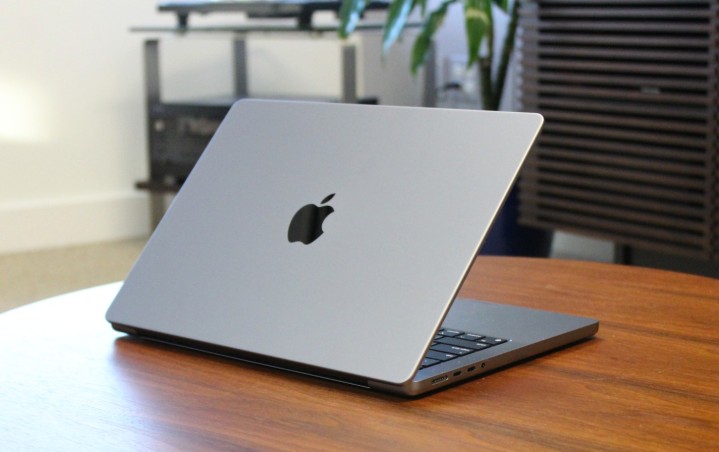table of contents
- 1 Navigating the Tech Labyrinth: A Comprehensive Guide to Buying an Excellent Laptop
- 1.1 1. Define Your Needs and Usage
- 1.2 2. Establish a Budget
- 1.3 3. Processor: The Brain of Your Laptop
- 1.4 4. Memory: The Gateway to Smooth Multitasking
- 1.5 5. Storage: The Home for Your Files
- 1.6 6. Display: The Window to Your Digital World
- 1.7 7. Graphics: The Power for Visuals
- 1.8 8. Battery Life: Staying Unplugged
- 1.9 9. Additional Features
- 1.10 10. Research and Reviews
- 1.11 11. Seek Assistance When Needed
- 1.12 12. Prioritize Reliability and Warranty
- 1.13 13. Embrace Flexibility and Upgrades
- 1.14 14. Protect Your Investment
- 1.15 15. Enjoy the Journey
- 2 Share on:
- 3 Related
Navigating the Tech Labyrinth: A Comprehensive Guide to Buying an Excellent Laptop

In today’s technology-driven world, laptops have become indispensable tools for work, education, and entertainment. Choosing the right laptop can be a daunting task, given the vast array of options available and the ever-evolving features and specifications. To help you navigate the tech labyrinth, here’s a comprehensive guide to buying an excellent laptop that aligns with your needs and budget.
1. Define Your Needs and Usage
Before embarking on your laptop quest, take a moment to clearly define your needs and intended usage. Consider factors like:
Primary Tasks: What will you be using the laptop for primarily? Web browsing, email, document editing, photo or video editing, gaming, or a combination of these?
Portability: How important is portability for you? Do you need a lightweight and compact laptop for travel or a larger, more powerful one for stationary use?
Operating System: Do you have a preference for Windows, macOS, or Chrome OS? Each operating system has its strengths and limitations.
2. Establish a Budget
Laptops come in a wide range of price points, from budget-friendly options to high-end performance machines. Determine your budget and prioritize the features that are most important to you.
3. Processor: The Brain of Your Laptop
The processor, also known as the CPU, is the heart of your laptop, determining its overall performance and speed. For basic tasks like web browsing and email, an Intel Core i3 or AMD Ryzen 3 processor should suffice. For more demanding tasks like photo or video editing, consider an Intel Core i5 or AMD Ryzen 5 processor. For gaming or heavy multitasking, an Intel Core i7 or AMD Ryzen 7 processor is recommended.
4. Memory: The Gateway to Smooth Multitasking
Random Access Memory (RAM) allows your laptop to run multiple programs simultaneously and switch between them seamlessly. For basic tasks, 4GB of RAM is sufficient. For smoother multitasking and demanding applications, 8GB or 16GB of RAM is recommended.
5. Storage: The Home for Your Files
Storage capacity determines how much data you can store on your laptop. For basic needs, 256GB of solid-state drive (SSD) storage should suffice. For storing large files or multiple programs, consider 512GB or 1TB of SSD storage.
6. Display: The Window to Your Digital World
The display is where you interact with your laptop, so choose a resolution and screen size that suits your needs. For basic tasks, a 13-inch or 14-inch display with a Full HD (1920×1080) resolution is sufficient. For more immersive viewing or professional work, consider a 15-inch or 17-inch display with a higher resolution like QHD or 4K.
7. Graphics: The Power for Visuals
Integrated graphics are typically sufficient for basic tasks. For more demanding graphics applications like photo or video editing, consider a laptop with dedicated graphics from NVIDIA or AMD.
8. Battery Life: Staying Unplugged
Battery life is crucial for portability. Aim for a laptop that offers at least 5-6 hours of battery life on a single charge.
9. Additional Features
Consider additional features like a backlit keyboard for comfortable typing in low light, a webcam for video calls, and fingerprint sensors for enhanced security.
10. Research and Reviews
Before making a purchase, thoroughly research and read reviews of the laptops you’re considering. Check online forums, tech publications, and user feedback to get a comprehensive understanding of each model’s strengths and weaknesses.
11. Seek Assistance When Needed
If you feel overwhelmed by the vast array of choices, don’t hesitate to seek assistance from tech-savvy friends, family members, or knowledgeable sales representatives.
12. Prioritize Reliability and Warranty
Choose a reputable brand known for producing reliable laptops. Read warranty terms carefully to ensure coverage for any potential issues.
13. Embrace Flexibility and Upgrades
Consider the future when making your purchase. Some laptops allow for RAM and storage upgrades, giving you the flexibility to enhance performance later.
14. Protect Your Investment
Invest in a protective sleeve or case to safeguard your laptop from bumps and scratches. Consider additional protection plans for comprehensive coverage against accidental damage or theft.
15. Enjoy the Journey
Purchasing a new laptop should be an exciting experience. Take your time, explore your options, and choose a device that aligns with your needs and preferences.







